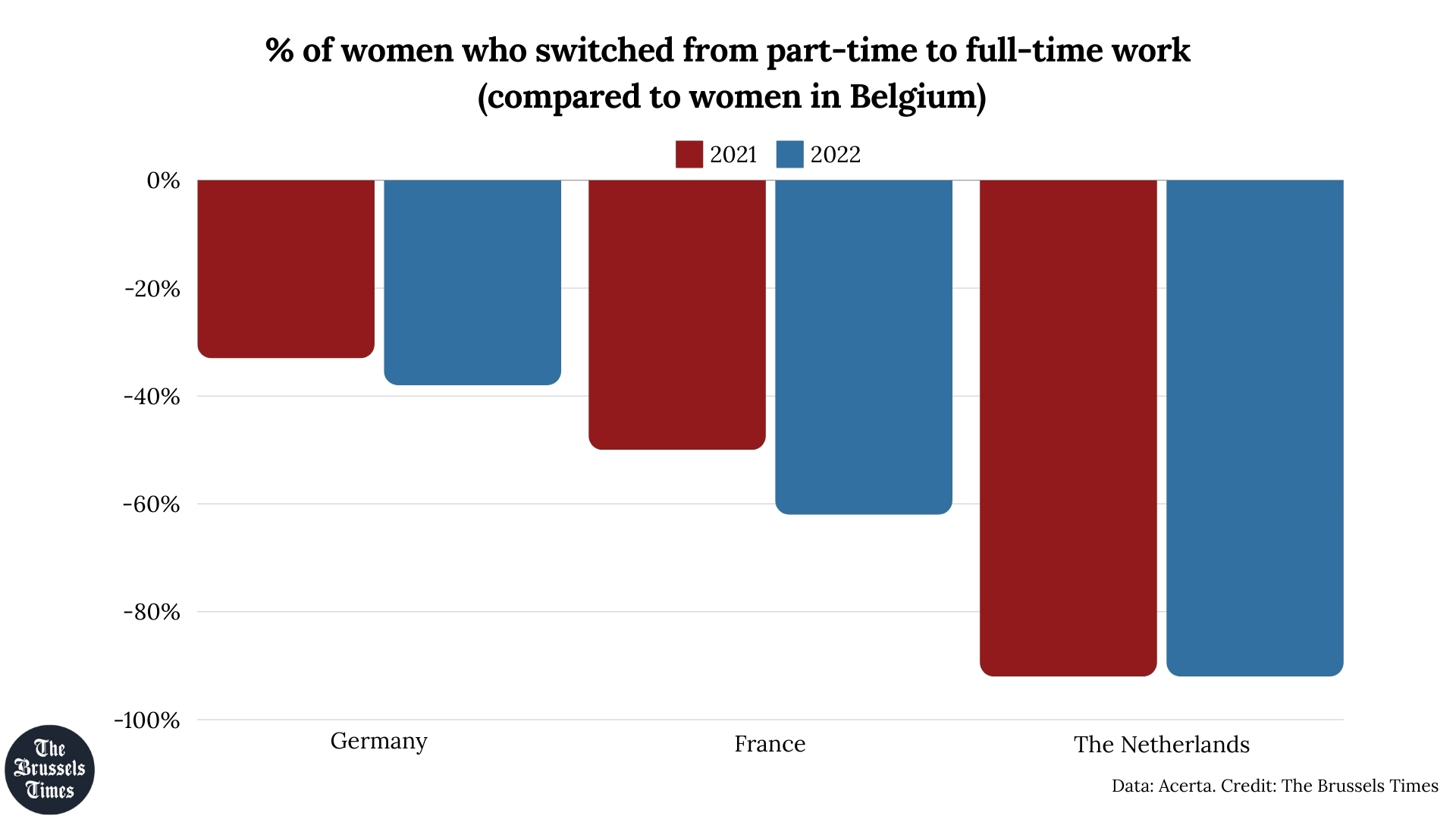People with a job in Belgium on average work seven days more per year than a decade ago. This rise is largely driven by female employees who have upped their working hours significantly, especially compared to neighbouring countries.
People on permanent contracts work some 33.5 hours per week on average – one hour and seven minutes more per week than a decade ago, or seven more days per year. HR service provider Acerta carried out research among 340,000 employees which showed that the increase is largely due to female employees. They now work an average of 11 days more (almost two hours per week) compared to 2014, marking an increase of 6.3%.
"It is striking that women in particular are working many more hours than ten years ago," said Miet Vanhegen, a legal expert at Acerta Consult.
In the same period, men worked 19 minutes more per week, or two extra days per year. As a result, the gap in the number of working hours per week between men and women is shrinking.
"This is largely due to changed social norms influencing family decisions on labour market participation." Enabling men to provide more support in the household, particularly in terms of paternity leave, also contributed to this trend.
Switch to full-time work
Among women, the rise in working hours is largely the result of their working situation. Around 30% more women have switched from part-time to full-time work between 2018 and 2022.
The sharp increase in the number of women who made this switch is particularly striking when looking at trends in Belgium's neighbouring countries. A comparative study based on Eurostat data shows that far fewer women increased their working hours in France, the Netherlands and Germany in recent years.
In 2021, for example, the share of women aged 25 to 64 who switched from part-time to full-time work was 33% lower in Germany compared to Belgium in 2021, and 38% lower in 2022. In France, the share was -50% and -62% while in the Netherlands, 92% fewer women made this switch in both years compared to the number of women in Belgium doing so.
Acerta noted that remote working also has a beneficial effect on the working week, but the increase in working hours among female employees can be seen both among women in blue-collar jobs (one hour and 53 minutes extra per week on average, an increase of 7%) and white-collar workers (one hour and 34 minutes extra per week on average, or +5.1%).
Related News
- 'Champion of gross wages': Where do people earn the highest salary in Belgium?
- Short-term absences from work decrease in Belgium for first time in ten years
This highlights that those who cannot work from home are also performing more hours. "No matter what the motivation is – financial, career development and career planning, for self-development [...] – investing in sustainable careers makes extra hours more possible and thus pays off for both the employer and the employee," Vanhegen said.
With a view to the affordability of Belgium's social security and given the major labour shortage Belgium is facing, it is beneficial that employees are performing more hours per week on average, she concluded.


